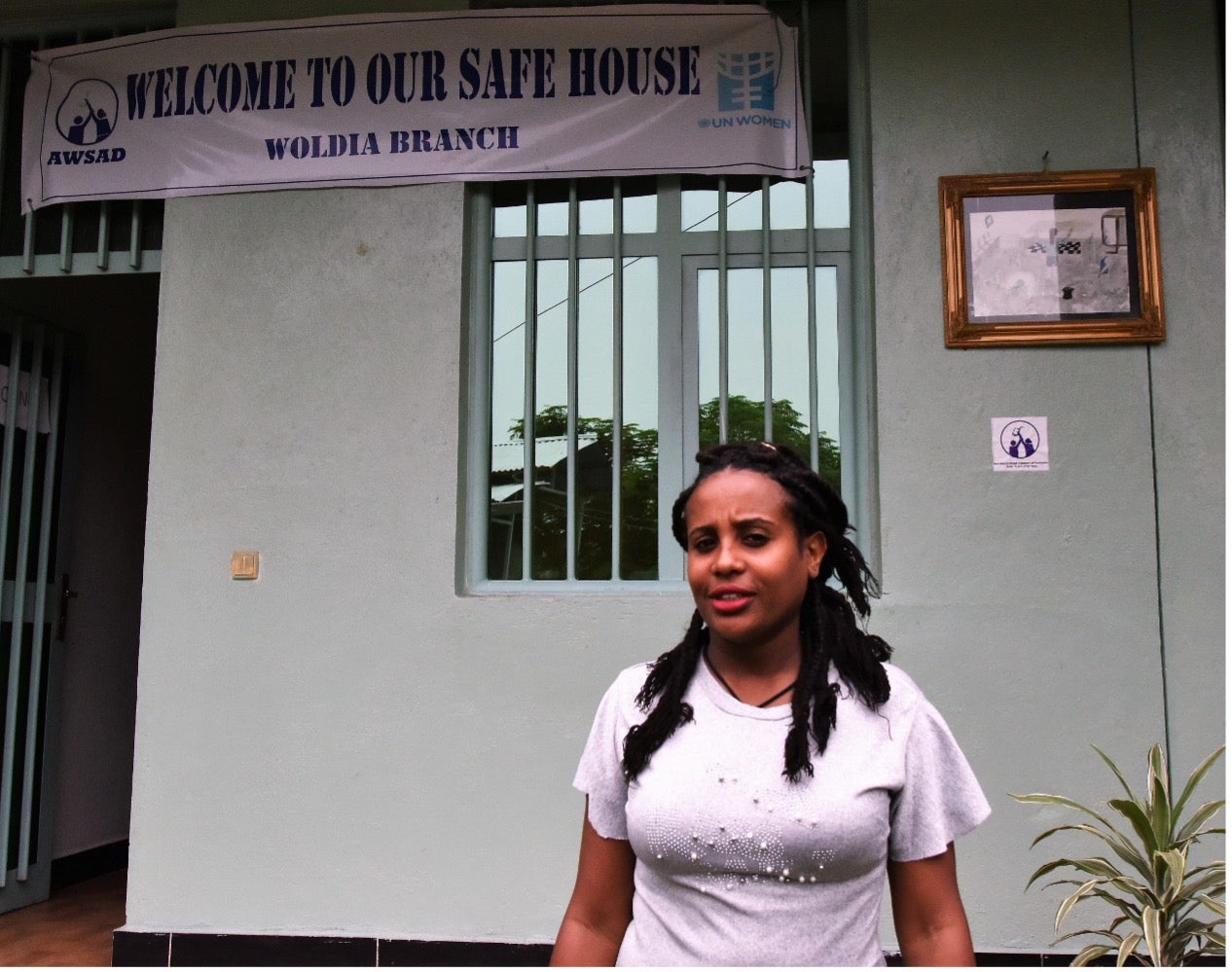From Where I stand: It was shocking to see the horrific violence women endured due to the conflict in Northern Ethiopia
Date:
Yetimwork Ayalew is coordinator of a safe house in Woldia, North Wollo of Amhara region, opened by the Association for Women’s Sanctuary and Development (AWSAD) with support from UN Women. The safe house was established to rehabilitate and reintegrate women and girl survivors of conflict-related sexual violence (CRSV) and sexual gender-based violence (SGBV) because of the Northern Ethiopia conflict, through the provision of comprehensive services including accommodation, meals, medical support, counselling, and livelihood support.

“The safe house was opened on January 27th, two weeks after the Tigrayan forces left Woldia. We established it here because survivors from around here were coming all the way to Dessie town to get support. There were many survivors of sexual violence due to the conflict and our safe house in Dessie was full to its capacity.
At first, no survivors were coming to the safe house. We realized we can’t sit and wait but work with community actors and Women and Children and Social affairs department. We sent a message out about the services provided and confidentiality respected. The survivors then started coming and we received 40 women in couple of days. We had facilitated access to abortion services for some who had requested, those who were still in their homes suffering started coming to demand services at our safe house. Others needed medical support and in-patient services due to the severe sexual violence they endured. It was shocking to see the extent of horrific violence happened to women survivors. Some days are sad, and some cases stay with me for long time.
Some survivors are afraid to tell their own husbands that they were sexually violated, and we need to cater our services to fit their needs as well. Fearing stigma, discrimination even from their spouses, they came to the center without revealing to their families neither where they were going nor their intent. More people want to come and get the service discreetly. We get referrals from one stop center based in Woldia referral hospital that we support, the police and from the Women and Children Affairs Bureau.
I grew up here in North Wollo zone and I have seen the destruction that the war has brought here. I am happy that I can work for women survivors of conflict-related sexual violence in the area. The work I do is personal, as it involves sharing stories, treating survivors with love, and seeing them change and getting their lives back again with our support.
By end of August 2022, 416 survivors have been rehabilitated by the services at the safe house. 37 women among them who lost businesses got start up grants to help them get their income back, through support from UN Women.
This project, which is part of The Central Emergency Response Fund (CERF) global grant, aims to ensure that women and girls who have experienced, are experiencing GBV or are at risk of GBV benefit from provision of and access to quality services and are empowered to increasingly engage in decision-making and leadership in GBV response, mitigation, and prevention.
UN Women’s work contributes to protection and empowerment of crisis-affected women and girls in Amhara and Afar regions of Ethiopia; scaling up partnerships with local women-led organisations (WLOs) / women rights organisations (WROs). This is closely related to the Sustainable Development Goals, particularly SDG 5 on gender equality, and SDG 3 on good health and well-being.